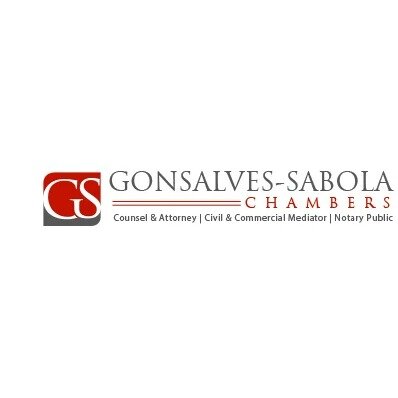Best Lawsuits & Disputes Lawyers in Nassau
Share your needs with us, get contacted by law firms.
Free. Takes 2 min.
List of the best lawyers in Nassau, Bahamas
About Lawsuits & Disputes Law in Nassau, Bahamas
Lawsuits & Disputes law in Nassau, Bahamas pertains to the legal process of resolving conflicts between individuals or entities through the court system. This may involve civil disputes, contractual disagreements, property issues, personal injury cases, and more. The legal system in Nassau provides avenues for individuals to seek justice and resolution for their disputes.
Why You May Need a Lawyer
You may need a lawyer in Lawsuits & Disputes situations in Nassau, Bahamas to ensure your rights are protected, navigate complex legal processes, gather evidence, negotiate settlements, and represent you in court. Common situations where legal help is necessary include breach of contract, property disputes, employment conflicts, personal injury claims, and more.
Local Laws Overview
In Nassau, Bahamas, Lawsuits & Disputes are governed by a combination of common law principles and local statutes. The legal system follows a similar framework to that of other Commonwealth countries, with a focus on fairness, justice, and equity. It's important to be aware of the laws and regulations that apply to your specific case to ensure a successful outcome.
Frequently Asked Questions
1. What is the statute of limitations for filing a lawsuit in Nassau, Bahamas?
The statute of limitations varies depending on the type of lawsuit. For example, personal injury claims typically have a limitation of three years, while contract disputes may have a limitation of six years. It's crucial to consult with a lawyer to determine the specific timeframe for your case.
2. How can I initiate a lawsuit in Nassau, Bahamas?
To initiate a lawsuit, you will need to file a claim with the relevant court and serve it on the other party. The court will then schedule a hearing where both parties can present their case. It's recommended to seek legal counsel to guide you through the process.
3. What are the possible outcomes of a Lawsuits & Disputes case in Nassau, Bahamas?
The possible outcomes of a Lawsuits & Disputes case can vary, including settlement agreements, court judgments, mediation resolutions, or arbitration decisions. The outcome will depend on the specific facts of the case and the applicable laws.
4. Can I represent myself in a Lawsuits & Disputes case in Nassau, Bahamas?
While you have the right to represent yourself in court, it's highly recommended to seek legal representation. Lawyers have the expertise, experience, and knowledge of the legal system to effectively advocate for your rights and achieve the best possible outcome for your case.
5. How much does it cost to hire a lawyer for a Lawsuits & Disputes case in Nassau, Bahamas?
The cost of hiring a lawyer for a Lawsuits & Disputes case can vary depending on the complexity of the case, the lawyer's experience, and the billing structure. Some lawyers may offer a contingency fee arrangement, hourly rates, or flat fees. It's advisable to discuss the fees with your lawyer upfront.
6. What are the alternative dispute resolution methods available in Nassau, Bahamas?
Alternative dispute resolution methods such as mediation and arbitration are available in Nassau, Bahamas to help parties resolve their disputes outside of court. These methods are often quicker, cost-effective, and less adversarial than traditional litigation. It's essential to explore these options with your lawyer.
7. How long does a Lawsuits & Disputes case typically take to resolve in Nassau, Bahamas?
The timeline for resolving a Lawsuits & Disputes case in Nassau, Bahamas can vary significantly depending on the complexity of the case, the court's schedule, and the parties' willingness to negotiate. Some cases may be resolved within a few months, while others may take years to reach a conclusion.
8. What evidence is admissible in a Lawsuits & Disputes case in Nassau, Bahamas?
Admissible evidence in a Lawsuits & Disputes case in Nassau, Bahamas may include documents, witness testimony, expert opinions, and physical evidence. It's essential to gather and preserve all relevant evidence to support your case and present it effectively in court.
9. Can I appeal a court decision in a Lawsuits & Disputes case in Nassau, Bahamas?
Yes, you have the right to appeal a court decision in a Lawsuits & Disputes case in Nassau, Bahamas if you believe there was a legal error or a miscarriage of justice. The appeal process involves presenting your case to a higher court for review. It's recommended to seek legal advice on the feasibility of an appeal.
10. How can I enforce a court judgment in Nassau, Bahamas?
To enforce a court judgment in Nassau, Bahamas, you may need to take additional legal steps such as obtaining a writ of execution, garnishing wages, or seizing assets. The court can provide guidance on the enforcement process, or you can consult with a lawyer for assistance.
Additional Resources
If you require legal assistance in Lawsuits & Disputes in Nassau, Bahamas, you can contact the Bahamas Bar Association, the Supreme Court of The Bahamas, or seek recommendations from trusted legal professionals. These resources can provide valuable information and guidance on finding the right lawyer for your case.
Next Steps
If you find yourself in need of legal assistance in a Lawsuits & Disputes case in Nassau, Bahamas, it's crucial to seek the advice of a qualified lawyer. Schedule a consultation to discuss your situation, explore your options, and take the necessary steps to protect your rights and achieve a favorable outcome. A lawyer can provide you with the expertise and support you need to navigate the legal process effectively.
Lawzana helps you find the best lawyers and law firms in Nassau through a curated and pre-screened list of qualified legal professionals. Our platform offers rankings and detailed profiles of attorneys and law firms, allowing you to compare based on practice areas, including Lawsuits & Disputes, experience, and client feedback.
Each profile includes a description of the firm's areas of practice, client reviews, team members and partners, year of establishment, spoken languages, office locations, contact information, social media presence, and any published articles or resources. Most firms on our platform speak English and are experienced in both local and international legal matters.
Get a quote from top-rated law firms in Nassau, Bahamas — quickly, securely, and without unnecessary hassle.
Disclaimer:
The information provided on this page is for general informational purposes only and does not constitute legal advice. While we strive to ensure the accuracy and relevance of the content, legal information may change over time, and interpretations of the law can vary. You should always consult with a qualified legal professional for advice specific to your situation.
We disclaim all liability for actions taken or not taken based on the content of this page. If you believe any information is incorrect or outdated, please contact us, and we will review and update it where appropriate.
Browse lawsuits & disputes law firms by service in Nassau, Bahamas
Nassau, Bahamas Attorneys in related practice areas.















